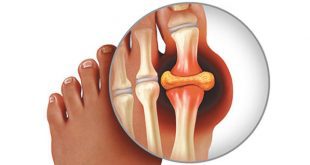By Anne-Marie Chalmers, MD


Yes, pooping.
Maybe as a physician, I should be medically correct and write “defecating” instead. But whatever the term, one thing is certain: Regular bowel movements are essential for feeling good.
Chronic Constipation Could Be a Symptom of Intestinal Dysbiosis
A proper poop depends on a healthy gut. So if you regularly struggle with constipation or diarrhea, it could be a sign that your gut is not functioning optimally.
In medicine, we use the term intestinal dysbiosis. This means that the populations of different gut bacteria that colonize the intestines have become imbalanced.
Today, we know that these gut bacteria dictate not just bowel-related disorders — like Irritable Bowel Syndrome (IBS) and chronic constipation — but also our weight and immune response to chronic diseases.
The composition of our gut bacteria depends on a variety of factors, including genetics, age, previous antibiotic use, and environment. Diet, however, plays an especially big role.
Let’s focus on two stool-facilitating nutrients that promote good intestinal health: fiber and fish oil.
The Digestive Benefits of Fibers
Almost every constipation-related article talks about the importance of eating enough fiber — and with good reason. Fiber has a profound impact on our digestive system.
First and foremost, fiber promotes good microbial health. Gut bacteria feed on fiber through fermentation, breaking them down in the digestive system. During this fermentation process, the bacteria create short-chained fatty acids (SCFAs) that support the integrity of the cells in the stomach. SCFAs also influence our metabolism, appetite, and immune response.
Different types of fiber also affect our digestive system in unique ways. For instance, beta-glucan soluble fibers (found in oats and barley) bind together with cholesterol to remove it from the intestines.
Insoluble fibers are generally not fermented by the gut bacteria. However, insoluble fibers are still important since they push food through the intestinal tract. Certain types of insoluble fiber also bind together with water to help soften the stool, providing a natural laxative effect.
Why Fiber-Rich Foods Are Important
Because different fibers feed different bacteria species and impact our digestive system in unique ways, eating a variety is best for promoting good health.
Unfortunately, most of us here in the United States do not get enough. While studies show massive improvements in microbial diversity when people consume more than 30 grams of fiber daily, most Americans only get between 12-18 grams on average.
The Benefits of Omega-3 Fish Oil for Constipation
Since oils act as natural lubricants, most varieties will help get the “ball rolling” in the restroom.
For better bowel movements, however, omega-3 fish oils have clear advantages for 3 key reasons:
1) Fish oil increases the production of intestinal alkaline phosphatase (IAP). IAP plays a crucial role in maintaining gut homeostasis and reducing inflammation in the intestines. Researchers have also found a link between lower IAP concentrations and conditions like IBS.
2) Full-spectrum fish oils have antimicrobial properties that keep certain “bad” endotoxin-producing bacteria from wreaking havoc in the gut. Since endotoxins cause inflammation, blocking their build-up helps reduce inflammation in the intestines.
3) Fish oil also promotes a better composition of gut bacteria. In clinical studies of IBS patients, researchers found that omega-3 supplementation increased the population of certain healthy bacteria species. Omega-3s also decreased the levels of harmful bacterial groups, resulting in an overall healthier gut.
How Often Should I Be Pooping?
If you take fish oil, enjoy a high fiber diet, and practice other healthy habits – like drinking lots of liquids and exercising regularly – chances are that you’ve mastered the art of pooping. Still, what does it mean to be ‘regular’?
While most people defecate once a day, the so-called ‘normal’ interval between defecations varies greatly. Constipation is defined as having fewer than three bowel movements every seven days. On the flip side, some people produce two to three stools a day, which is still considered within the normal range.
Given such a wide definition for ‘regularity,’ the most important thing to remember is that consistency is key.
This article was abbreviated from a longer version published on omega3innovations.com. For the full text and references, visit:
https://omega3innovations.com/blog/fish-oil-and-fiber-how-to-be-number-one-at-number-two/
About Anne-Marie Chalmers, MD
Born and raised in the United States, Dr. Chalmers graduated from Brown University and completed her medical training at the University of Oslo in Norway. Dr. Chalmers practiced medicine in Norway for many years. Today, she serves as president of Omega3 Innovations.
Call us at 941-485-4400
www.omega3innovations.com
 Southwest Florida's Health and Wellness Magazine Health and Wellness Articles
Southwest Florida's Health and Wellness Magazine Health and Wellness Articles

